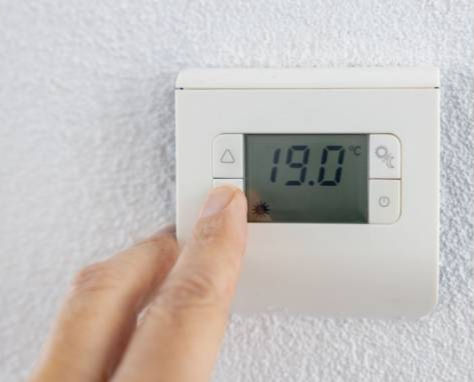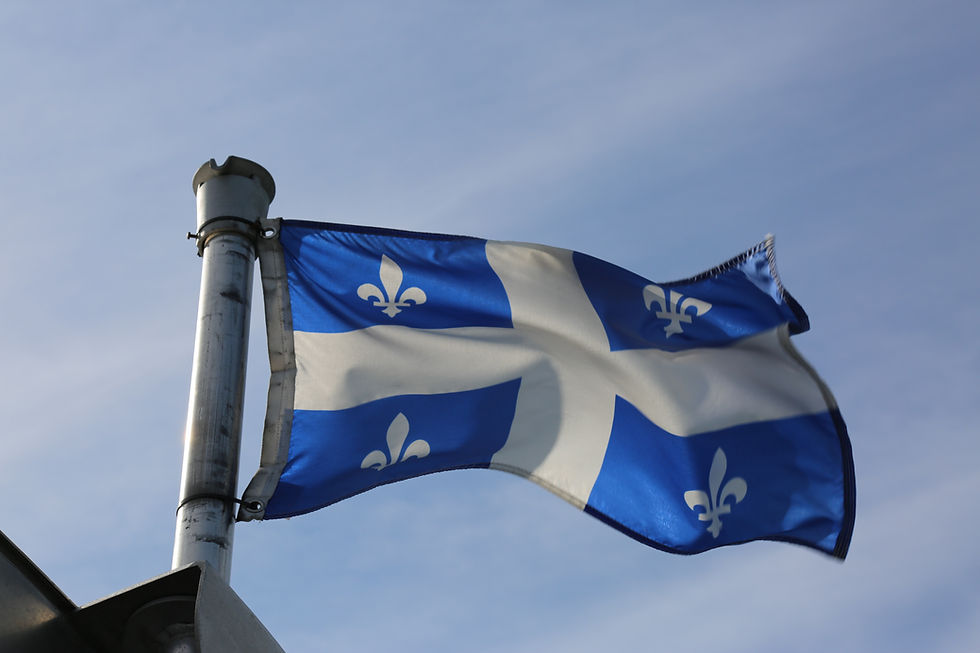Which residential heating system to choose in Quebec
- coraliefortin076
- Jun 30, 2025
- 7 min read
Updated: Jul 11, 2025

Heating is a fundamental component of Quebecers' comfort and quality of life, especially when winter temperatures often drop below zero for long months. Whether you're building a new home, a cottage, or a garage, or planning a renovation, choosing the right heating system is an essential step.
This choice is even more crucial in Quebec, where harsh winters require efficient, economical, and sustainable solutions. Plan Maison Québec, an expert in designing construction and renovation plans, offers an in-depth guide to assist you in this strategic decision.
Understanding the Quebec climate and its impacts on heating residential in Quebec
Quebec is distinguished by its long and intense winters. Depending on the region, temperatures can easily drop below -30°C. This climatic reality requires a constant, reliable, and efficient heating capacity. This also means that the choice of system cannot be made lightly: it must take into account temperature variations, humidity, prevailing winds, and the building's ability to retain heat.
This is why Plan Maison Québec encourages its clients to integrate sustainable heating residential in Quebec, solutions adapted to the province's extreme conditions from the project design stage.

Assess your real energy needs
Before even choosing a heating system, you must determine the specific needs of your home. This includes the area to be heated, the number of floors, sun exposure, the quality of the insulation, the number of occupants, and even the type of rooms (a detached garage or a semi-buried basement, for example, will have different needs).
A well-insulated 1,200 sq ft bungalow will not have the same requirements as an open-concept cottage in the Eastern Townships or an urban triplex in Montreal. Plan Maison Québec takes all these elements into account to offer you a customized heating solution.
In-depth review of the main heating systems
Electric heating
Easy to install and widely used in Quebec, electric heating includes baseboards, convectors, radiant heaters, and heated floors. It is powered by clean, renewable hydroelectric electricity. However, for large or poorly insulated homes, the bill can quickly mount up.
This system is ideal for well-insulated homes or secondary buildings such as cottages or garages. It can also be used as supplemental heating in conjunction with a heat pump.

Hydro Québec Natural gas heating
Renowned for its power and comfort, natural gas remains an attractive option when available. It provides consistent, fast heat, and is often more economical than electricity in the long run. However, its availability is limited to certain regions, and it remains a fossil fuel.
Oil heating
Long used, it is now in decline in Quebec due to its environmental impact and high cost. Oil-fired systems are gradually being phased out, notably thanks to the Chauffez Vert program, which encourages their replacement with more environmentally friendly systems such as heat pumps.
Biomass heating
Using logs or pellets, biomass heating is ideal for cabins or rural homes. It's a natural, local, and renewable heat source. While it requires more maintenance and upkeep, it can deliver excellent performance, especially with modern EPA-certified appliances.

Biomass heating Heat pumps
Increasingly popular, heat pumps (air-to-air or air-to-water) allow for efficient heating and cooling of a home. They consume little energy and can be used year-round. In combination with another system, they ensure optimal comfort even during periods of extreme cold. Plan Maison Québec frequently recommends this technology in its plans, particularly for new construction.
Renewable energies: towards a sustainable future
With the ongoing energy transition, more and more Quebecers are turning to renewable energy to heat their homes, cottages, or garages. These energy sources offer an ecological, sustainable, and often economical alternative to traditional systems, especially when they are well integrated into the building's overall design.
Photovoltaic solar panels
The installation of photovoltaic solar panels is booming in Quebec. These panels convert solar energy into electricity, which can then directly power an electric heating system, a heat pump, or additional heaters. Even though winter days are shorter, performance remains good thanks to the reflection of light off the snow and the cold temperatures, which improve the efficiency of the panels.
These systems can be connected to the Hydro-Québec grid (net metering program) or combined with batteries for partial autonomy, making them particularly attractive for cottages or homes in remote areas.

Solar thermal panels
Unlike photovoltaic panels, solar thermal panels directly capture the sun's heat to heat a liquid circulating through pipes. This liquid can then be used to power a water-based underfloor heating system or a hydronic heating system. These panels are particularly effective in homes with large areas of underfloor heating.
Residential geothermal energy
Geothermal energy is one of the most efficient long-term solutions. It uses heat stored in the ground to heat your home steadily, even during the coldest winters. This system can also be used for air conditioning during the summer. It requires a higher initial investment, but offers substantial savings and exceptional durability.
Plan Maison Québec regularly offers this technology in its plans for high-energy-performance homes.
Passive solar houses
Some homes are designed to naturally capture the sun's energy. Thanks to optimal orientation, abundant south-facing windows, and materials with high thermal inertia (such as interior concrete slabs), these homes can accumulate heat during the day and slowly release it at night.
Plan Maison Québec can adapt the architecture of your home to maximize these passive solar gains, thus reducing your heating needs.
Grants for renewable systems
Financial assistance is available to encourage the adoption of these technologies. For example, the Chauffez Vert program offers a generous grant to replace an oil or propane heating system with an electric heat pump.
Other federal programs, such as the Canada Greener Homes Grant, can also help finance the addition of solar panels or geothermal systems.
Plan Maison Québec supports you in the planning and implementation of your project, as well as in the administrative procedures to obtain this assistance.

The importance of insulation
No matter what heating system you choose, it will never reach its full efficiency if your home is poorly insulated. Good insulation is the first line of defense against heat loss. It acts like a blanket around your home, keeping it warm during the winter and cool during the summer. Poor insulation, on the other hand, has direct and often costly repercussions on comfort, the building's durability, and the occupants' finances.
Significantly higher heating costs
When heat escapes through poorly insulated walls, roofs, or foundations, your heating system must continually compensate for this loss. As a result, it runs much longer and consumes more energy.
This overuse results in significantly higher heating bills, sometimes several hundred dollars per month, especially during periods of extreme cold. In the long run, these recurring costs represent a significant financial loss. Good insulation, combined with an efficient heating system, can reduce energy needs by 20 to 50%, depending on the building's configuration.

Uneven and unpleasant thermal comfort
Poorly insulated homes often have cold spots in certain rooms, especially near windows, exterior wall corners, or floors in contact with the ground. It becomes difficult to maintain a consistent temperature from one room to another.
Occupants must then turn up the heat to feel minimal comfort, without ever achieving optimal thermal well-being. This lack of consistency affects quality of life, particularly in bedrooms, basements, or open living spaces.
Condensation, humidity and mold
Poor insulation often leads to the formation of thermal bridges, areas where heat escapes quickly, creating a temperature difference between the warm indoor air and cold surfaces (walls, windows, ceilings). This thermal shock promotes condensation of moisture in the air, which can turn into stagnant water on certain surfaces.
Over time, this persistent moisture can lead to mold problems, particularly in corners, behind furniture, or in walls. Mold is not only visually unpleasant: it poses a health hazard, especially for children, the elderly, and people with asthma or allergies.

Accelerated deterioration of your heating system
A heating system forced to operate continuously to compensate for heat loss caused by poor insulation suffers premature wear. Whether it's a heat pump, furnace, or central heating system, the unit will have a shorter lifespan, require more maintenance, and may break down more frequently. This translates into additional repair costs or even early replacement of the equipment.
A loss of real estate value
In the current context, where energy performance is increasingly scrutinized by buyers, a poorly insulated home becomes less attractive on the real estate market. It will be perceived as an energy-intensive building, expensive to heat, and requiring major renovations. Conversely, good insulation improves a home's energy rating, reduces its carbon footprint, and increases its resale value.
At Plan Maison Québec, we know that a well-designed home isn't just a matter of aesthetics or interior design. It's also a matter of a high-performance thermal envelope. That's why we integrate clear insulation recommendations right from the design stage: ventilated attics insulated to R-50 or higher, exterior walls rated at R-24 or R-28 depending on the climate zone, well-protected floors, and energy-efficient triple-glazed windows.
We firmly believe that comfort, energy savings and sustainability begin with effective insulation, adapted to the real conditions of the Quebec climate.

Conclusion : trust Plan Maison Québec for optimal heating
Choosing a heating system suited to your construction or renovation project is a crucial step in ensuring your comfort, controlling your energy costs, and reducing your environmental impact. Quebec's climate imposes specific constraints that must be strictly adhered to. Between traditional options and renewable technologies, there are numerous solutions, but they must be evaluated on a case-by-case basis.
At Plan Maison Québec, we offer our expertise to design house, cottage, or garage plans that incorporate the heating system best suited to your needs, while ensuring efficient insulation and optimal integration of renewable energy. We also guide you in taking advantage of grant programs such as Chauffez Vert (Green Heat) to reduce your initial investment.
Don’t wait any longer to build a healthy, comfortable and economical environment.



Comments